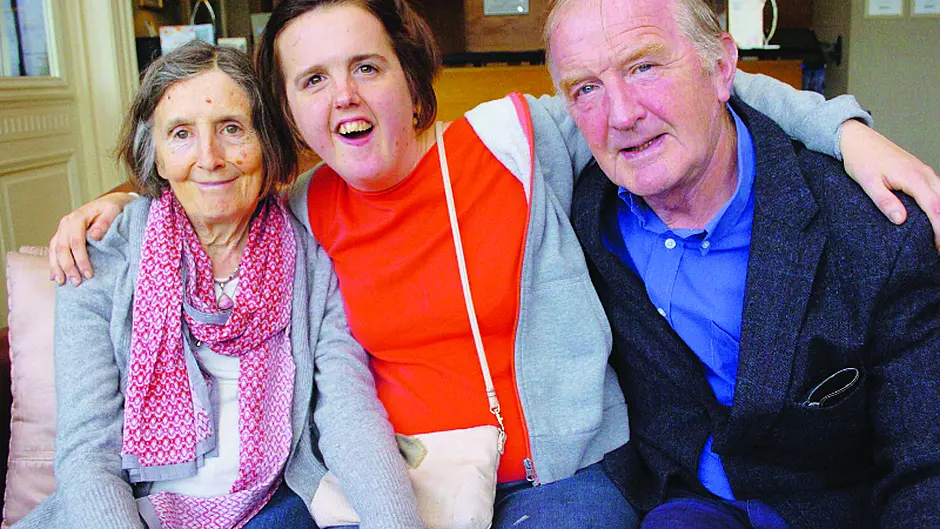Gill Riordan is the primary carer of her youngest daughter Laurie (27), who is of moderate disability.
Gill Riordan is the primary carer of her youngest daughter Laurie (27), who is of moderate disability.
‘Laurie has five sisters, living in the US, Italy and France, Durrus and Clonakilty. Her West Cork sisters have two children each; one sister also cares for her husband who was disabled in a serious motorcycle accident one year ago.
Laurie can’t read or write and has some difficulty with balance. She needs help with washing, showering and dressing each morning and wears incontinence clothing while sleeping. She also generates additional washing every day.
My husband John makes Laurie’s breakfast each morning, helps her with her shoes and drives her to the bus in Glandore for a 9.05am collection. He collects her from the bus in Glandore at 4pm.
Domestic chores and cooking are shared.
My own health challenges include leukaemia, osteoporosis and scoliosis so I need to rest three times a day. I also have back problems which result in hip pain meaning I am unable to lift heavy objects.
I don’t know how we could survive as a family without our Tuesday and Thursday evening respite service in CoAction houses in Skibbereen. We also get a weekend a month respite.
CoAction’s frontline staff are excellent. Caring for an adult or child with special needs places considerable strain on any relationship. Laurie needs constant company, and is disturbed by any change in her environment. She loves music and when she gets the opportunity, she loves chilling out with her nieces.
She looks forward to getting a break from her parents when she goes to respite, of course! And they enjoy a rest. Much more detailed planning needs to be done to provide necessary respite to CoAction parents, many of whom are unable to get out together, go to a wedding or take a short holiday.
Our biggest worry is what happens to Laurie and adults like her when we die. At our age, time is running out and we need to see a detailed plan for residential places and accommodation which our adult children can call their own and which they can occupy before we die. A caring organisation can’t be run on expensive emergency funding which is what will happen if plans and accommodation are not in place.
Parents like us need a voice that is listened to, and our advice included when services are being designed and reviewed. Parents know their children best.
Laurie is a very happy child. What we lack in spontaneity, we make up for by planning our time to enjoy walking, gardening and reading when we can.’







